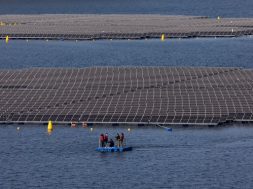
In Saudi Arabia, the leap forward for solar energy.
If there is one country where the use of solar panels makes sense, it is Saudi Arabia.
Sunshine is extremely important there, between twelve and thirteen hours a day in the hot season, and between six and eight hours a day in the mild season. In terms of energy, we are talking about 2,300 kilowatt hours per square meter, which is considerable. In comparison, this is 1.4 times what Japan can produce from its own sunshine. And there are vast unused areas in the Middle East that are perfect for the use of solar energy, which makes the kingdom (and many of its neighbors) a perfect candidate to become a leading player in the development and use of this technology.
A still imperfect technology
However, the temperature records recorded in the country reduce the efficiency of the panels. When exposed to excessive heat, they are not only unable to convert all of the sun’s energy into electricity, but also lose their lifespan due to excessive wear and tear. It should be noted that conventional solar panels convert only 20% of solar energy into electricity.
Progress in progress
That’s why a group of researchers at Saudi Arabian University KAUST, which specializes in science, technology, and innovation, is working to create a panel cooling system that would reduce energy loss and extend panel life. A team, led by Professor Peng Wang, recently succeeded in doing so, using water vapor from the atmosphere. A small revolution that increases the amount of electricity generated by 20%.
A solution accessible to all
According to Professor Wang, who is in charge of the project, this should make solar energy more competitive and thus enable it to have a real impact on energy on a global scale: “Water vapor is available everywhere, even in desert regions, and water is one of the materials with the greatest cooling potential. By using ambient humidity in the desert at night, enough water can be harvested to implement this technology,” explains the scientist.
As a reminder, Saudi Arabia hopes to produce 50% of its electricity through renewable energy by 2030. Solar energy will, of course, have a big role to play in this transition.

















